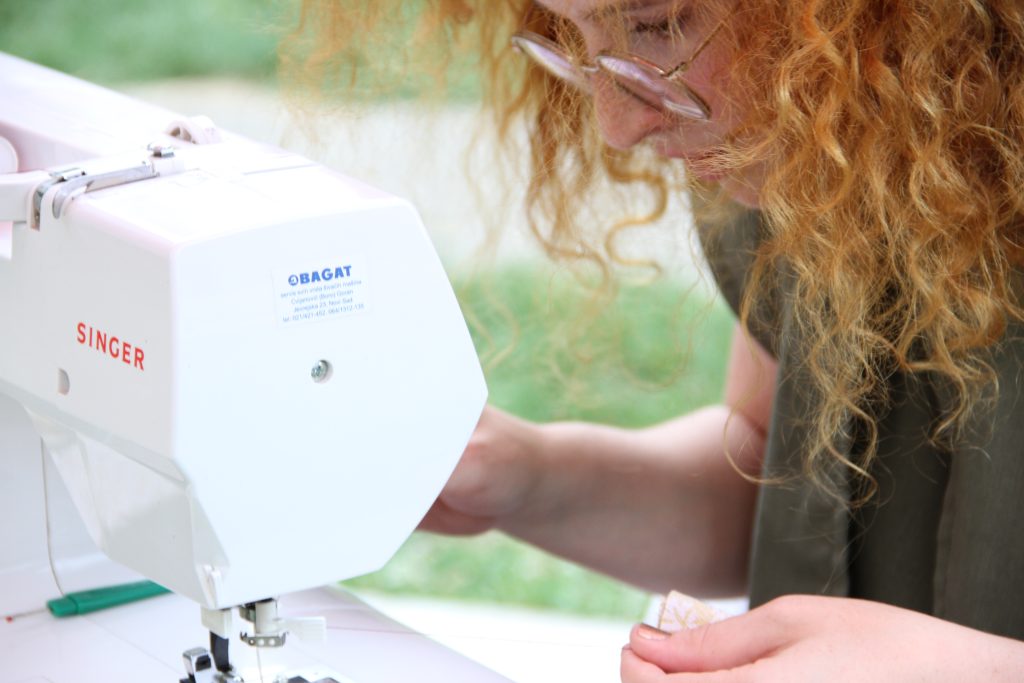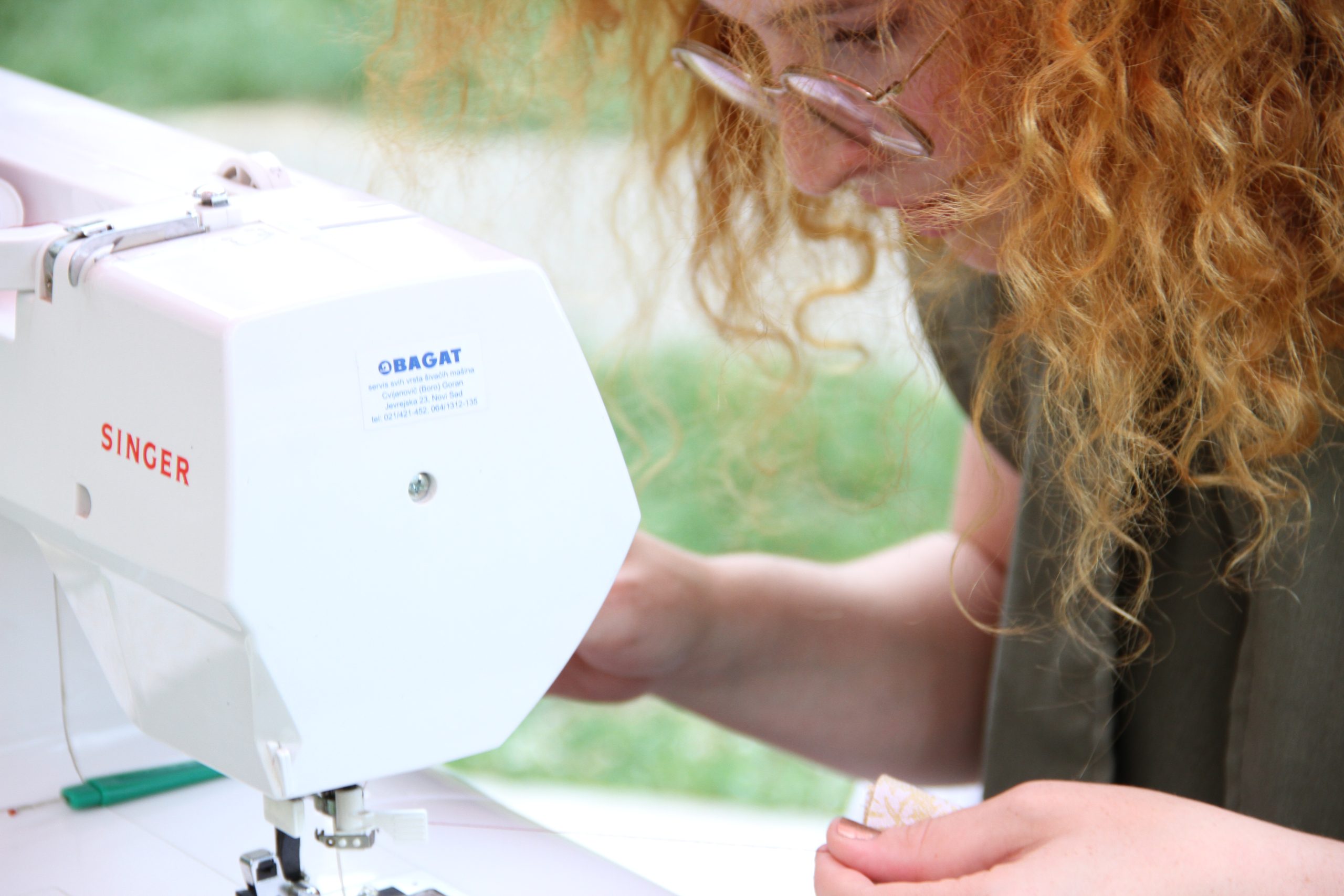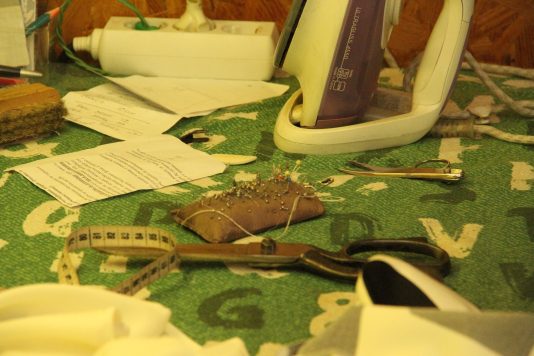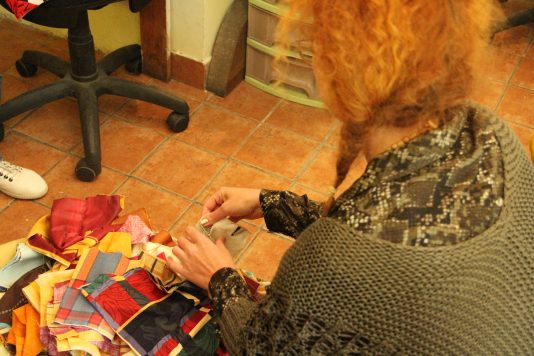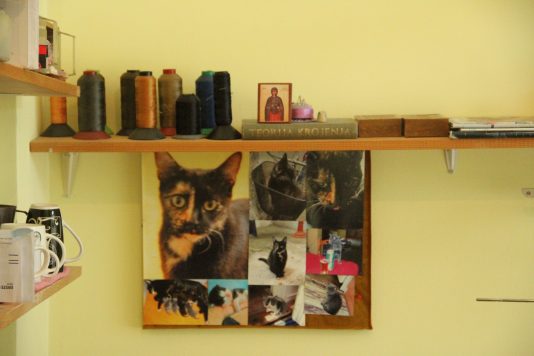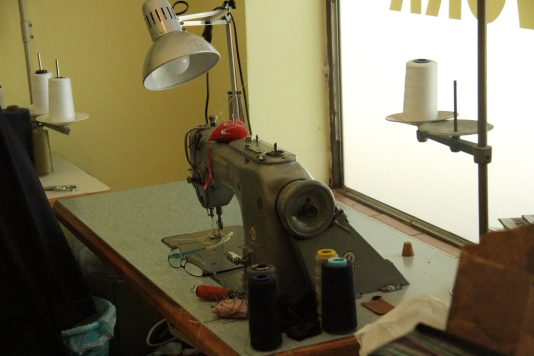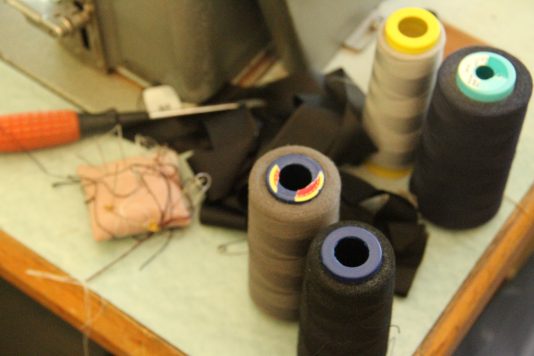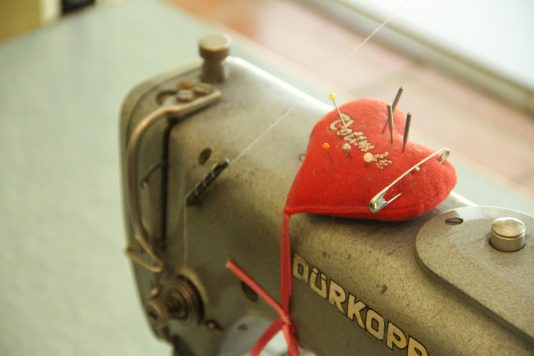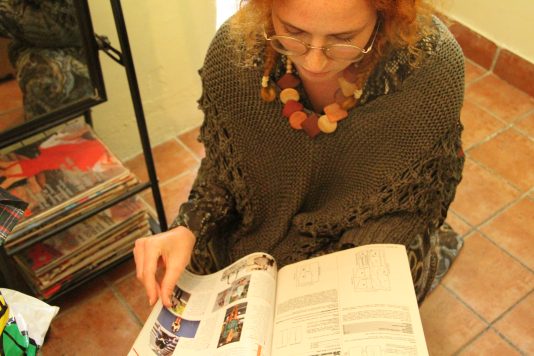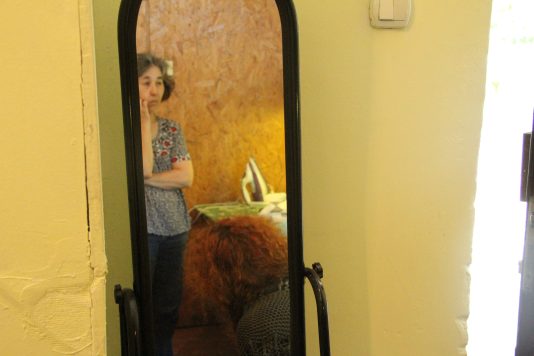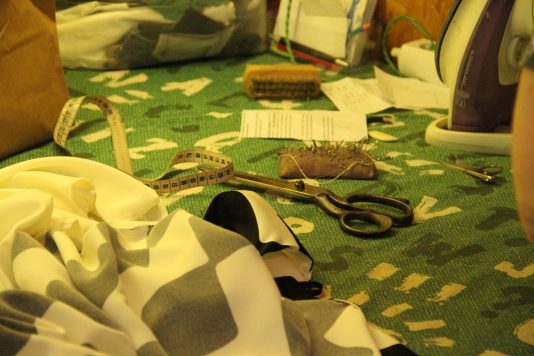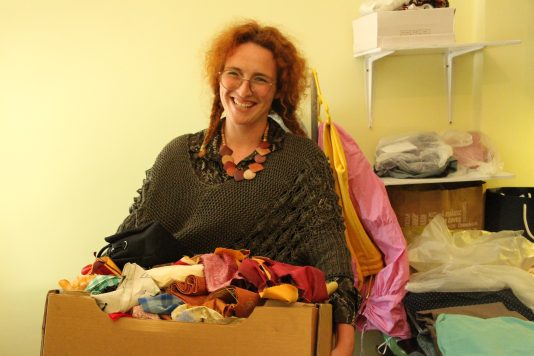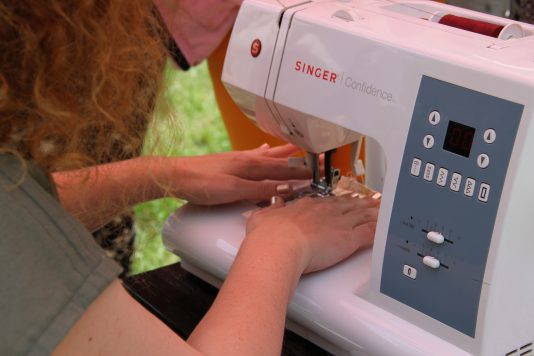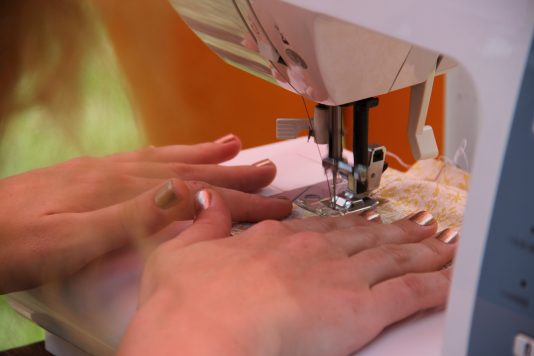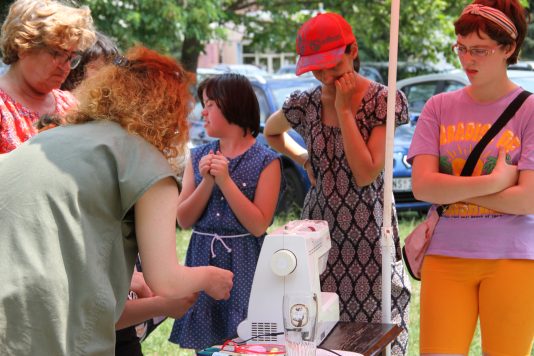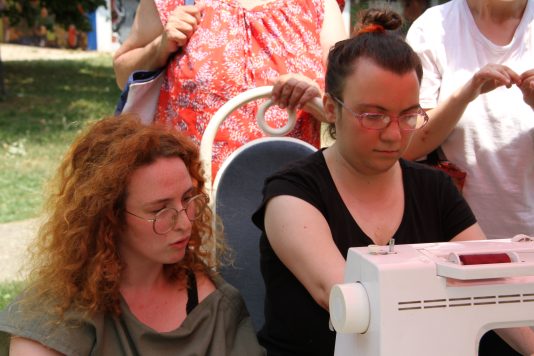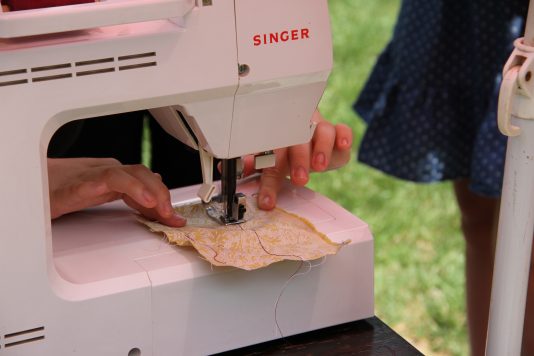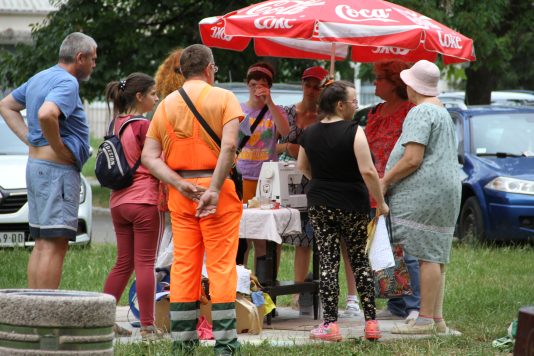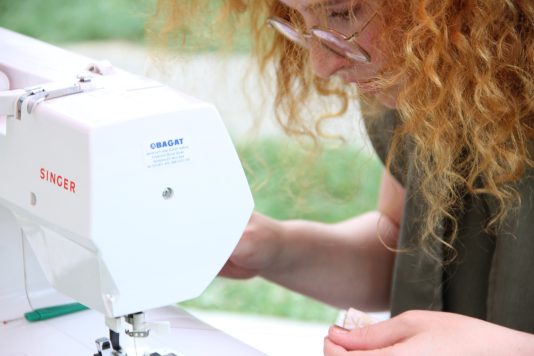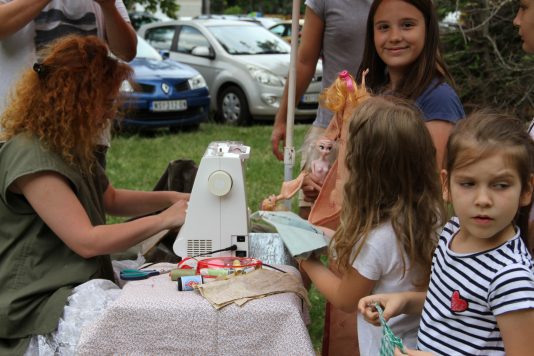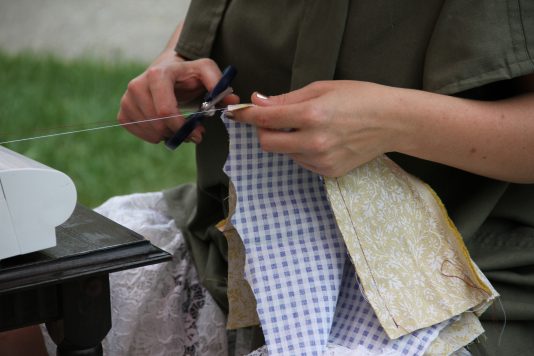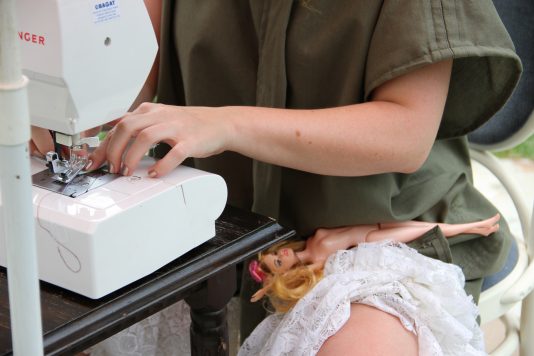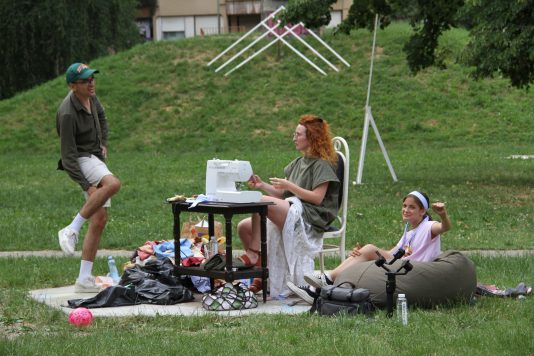Helena Soldat
“Common stitch”
During last year’s residency, representing the experimental research phase of the New(Un)discovered Spaces project, we observed that Novo Naselje is home to numerous small entrepreneurial ventures, primarily family businesses and the sole source of income for many families. Most of these businesses face the challenge of competing with hypermarkets, ubiquitous in the area, offering similar products at lower prices. This situation places small entrepreneurs in unfavorable conditions, reducing their visibility and, consequently, their profits. The entire work process during the project aims to bring the qualities of these employers closer to the Novo Naselje community and highlight the benefits that the entire community reaps through their survival.
Art and economics initially seem like distinct and incompatible fields. However, in reality, these two domains are often intertwined in various ways. Besides the apparent connection reflected in the commercialization of artistic works and the profit for artists or the city and state due to increased tourism from attractive artistic landmarks, these two fields interlace on more complex levels.
Socially engaged art in the entrepreneurial sector can stimulate various changes in society. By creating new business models focused on solving social problems within the Novo Naselje community, such as a lack of unity, forgotten values nurtured by the community, and micro-problems that create dissatisfaction, these models can create new market niches, fostering innovation and societal improvement.
In short, art and economics are two interconnected fields that can operate in different ways, from commercial activities and inspiration to job creation and cultural development, to mutual exchange between these two fields and mutual benefits. The Novo Naselje entrepreneur community is largely composed of middle-aged individuals, and their ideals heavily rely on the socialist regime of Yugoslavia and nostalgia for times of community and when such businesses had additional value.
Socially engaged art can contribute to entrepreneurship by creating new business models, initiating artistic projects that encourage social change, and improving corporate responsibility. The creative approach and innovations brought by artists can stimulate entrepreneurial spirit, enhance existing entrepreneurial activities, connect individuals, and contribute to the creation of a community atmosphere.
This project aims to identify crucial issues within the small entrepreneur community of Novo Naselje and, through various artistic practices, shed light on these issues, thus contributing to their visibility and resolution. This approach increases the awareness of Novo Naselje residents on given topics, encouraging their active involvement in the cultural life of the city and critical thinking. Additionally, by merging these two fields, we create a new audience for contemporary artistic practices. Through collaboration with entrepreneurs, we contribute to their increased visibility, networking with other entrepreneurs and citizens, thus contributing to the development and stability of their businesses.
Calling on relevant authorities for greater responsibility is another aspect that the fusion of art with local entrepreneurship can impact. Artistic projects that transparently address current community issues can contribute to creating awareness about the active role that authorities can play in resolving market monopolization problems and taking measures to simplify and facilitate entrepreneurial endeavors.
The residencies in 2023 aim to portray entrepreneurs as individuals, presenting them to the neighbors of New Settlement not only as businesspeople providing services, but also as their neighbors who play a significant role in the community and can contribute greatly to its well-being.
The project “Common stitch” by Helena Soldat, represents a profound contemplation on essential values in the lives of small entrepreneurs, with a focus on tailors. Through this engaged eight-hour performance carried out in public, open space, Helena Soldat opens a dialogue about the impact of contemporary social trends on the work of tailors and, more broadly, on values in the industry and interpersonal relationships.
This work delves into the core of traditional crafts, emphasizing fundamental values that are often overlooked in the accelerated pace of modern life. Helena Soldat explores the dynamics between the material and the emotional, using the work of tailors as a key element in telling the story of the relationship between labor and values in today’s society.
The performance highlights the work of tailors as exposed to repetitiveness and adaptation to the fast pace of life. Instead of the freedom of expression and creative design, tailors face constant alterations of different patterns to meet market demands. This aspect of tailors’ work is positioned as a paradigmatic representation of the trade-off between the freedom of artistic expression and the necessity of adapting to consumer needs.
Through this artistic endeavor, Helena Soldat also explores the importance of time, a currency consciously given in exchange for the work of tailors. The performance serves as a platform for a dialogue about values, not only in material things but also in interpersonal relationships. Openness to interventions, conversation, and even teaching during the performance creates space for a collective confrontation with questions of value, expressed through the creation and reassessment of everyday objects.
“Common stitch” is not just an artistic performance but also an invitation to reflect on the relationship between work, values, and community. Through this exploration, Helena Soldat manages to raise awareness about the importance of preserving traditional crafts, emphasizing that material things are not just consumables but carriers of deep emotional connections and values.
Curatorial text by Sara Dedić
